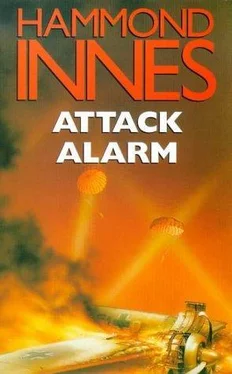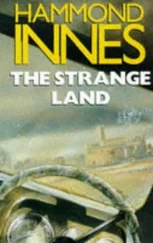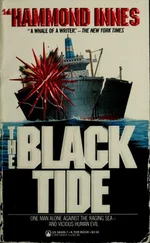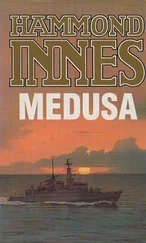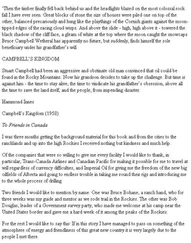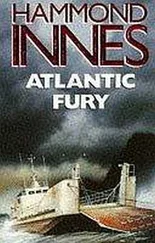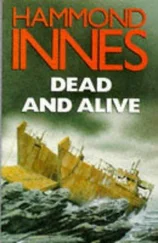Hammond Innes - Attack Alarm
Здесь есть возможность читать онлайн «Hammond Innes - Attack Alarm» весь текст электронной книги совершенно бесплатно (целиком полную версию без сокращений). В некоторых случаях можно слушать аудио, скачать через торрент в формате fb2 и присутствует краткое содержание. Жанр: Прочие приключения, на английском языке. Описание произведения, (предисловие) а так же отзывы посетителей доступны на портале библиотеки ЛибКат.
- Название:Attack Alarm
- Автор:
- Жанр:
- Год:неизвестен
- ISBN:нет данных
- Рейтинг книги:5 / 5. Голосов: 1
-
Избранное:Добавить в избранное
- Отзывы:
-
Ваша оценка:
- 100
- 1
- 2
- 3
- 4
- 5
Attack Alarm: краткое содержание, описание и аннотация
Предлагаем к чтению аннотацию, описание, краткое содержание или предисловие (зависит от того, что написал сам автор книги «Attack Alarm»). Если вы не нашли необходимую информацию о книге — напишите в комментариях, мы постараемся отыскать её.
Attack Alarm — читать онлайн бесплатно полную книгу (весь текст) целиком
Ниже представлен текст книги, разбитый по страницам. Система сохранения места последней прочитанной страницы, позволяет с удобством читать онлайн бесплатно книгу «Attack Alarm», без необходимости каждый раз заново искать на чём Вы остановились. Поставьте закладку, и сможете в любой момент перейти на страницу, на которой закончили чтение.
Интервал:
Закладка:
Hammond Innes
Attack Alarm
Chapter One
The atmosphere of the place was stifling. The air was hot Hid full of smoke, and the lamps, which had just been lit, glowed dimly. From where we sat at the entrance it was rarely possible to see the beer counter at the far end. And between ourselves and the bar was a sea of faces, sweat-glistening and animated — like masks seen vaguely through curling tobacco smoke. This was our only recreation. This was Thorby in mid-August.
It had been exciting enough at first. A fighter station at the beginning of the Blitz was exciting. But after only a week in the place, the excitement had palled; it had become a strain. The inevitability of concrete runways and brick and concrete buildings, the din of revving engines and the dust had asserted themselves. Dust and noise — that epitomised Thorby. And not even the excitement of action could dispel my sense of depression.
It wasn’t just the dust and the noise that made me depressed. Thorby was better than some stations. It had been built in 1926, and those who had planned it had had the grace to give the roads grass borders and to plant trees. At certain strategic joints there were even flowerbeds. God knows, I longed for the fresh green of the country, but it wasn’t that that made it impossible for me to join the others in celebrating their first action. It was the atmosphere of the place. It was tense — tense and waiting. Even in the few days I had been on the site, Thorby had changed. France had fallen in June. The Luftwaffe was just across the Channel now. Invasion was in the air. The coast and the fighter ‘dromes felt it most, for they had become the front line. All around the ‘drome barbed-wire entanglements were springing up. Trenches were being hastily dug at vulnerable points and brick and concrete pill-boxes built to cover the landing-field as well as the outer defences. Civilians had been brought in to help the Army. Thorby was like a town preparing for a siege. And it had the same atmosphere. Everyone was waiting, waiting with nerves taut.
That atmosphere of tension was nowhere more noticeable than in the big Naafi tent at the edge of the square. There was no leave now — not even local leave. There was no relaxation from the strain of waiting, except to come here and drink and sweat.
God! how stifling it was! At the table opposite ours a sapper struck up ‘Tipperary’ on a mouth organ. In an instant half the tent had taken up the song. Why did we have to fall back on the last war for our songs? I was thinking with distaste of those abortive efforts of the early days — ‘Run Rabbit Run’ and ‘We’ll Hang Out our Washing on the Seigfried Line’ — when somebody touched me on the arm. I looked up. It was Kanly Furle. ‘What are you drinking?’ he asked, leaning across the table to make himself heard.
I shook my head. ‘No more for me, thanks.’
‘Oh, but, my dear man, you simply must. We’ve got up to sixty-five. One more round and we’ll have seventy-five. That will be a new high for the troop.’
I stared at the array of bottles. Whilst I had been lost in my thoughts, the others had collected our litter of bottles and arranged them in columns of threes. They stretched from one end of the table to the other and overlapped on to the next.
Kan pointed to the one bottle of brown ale which had been stood out in front. ‘Oggie,’ he said. He had risen to his feet and his slim body was swaying slightly, you know — our little man — Ogilvie. You’re drinking a pale ale.’
And with that he went off up the gangway and pushed his way in amongst the crowd at the bar. He was a tall, slim boy, rather too narrow in the shoulders to be well-built, but graceful in his movements. He was an actor and an obvious devotee of Gielgud. This and the fact that he affected a silk scarf beneath his battle blouse made him rather an outstanding personality even in a varied troop like ours.
He returned bearing ten bottles. When he had distributed them, he sat down in the seat opposite me.
‘Well, here’s to those famous last words of yours, Kan — “Look at those Blenheims!”,’ said Sergeant Langdon. He was our detachment commander.
‘Blemins!’ exclaimed Micky Jones. ‘Blemins! Were they — hell! I’d like to kill every bleedin’ Jerry wiv a baynet. Cold steel! that’s what they want. The beggars can’t take it. Cold steel, mate! They can’t take that, can they, John?’ he asked Langdon and buried his face in his glass. He was a scruffy little man, with a dark, round face, hardly any teeth and very close-cropped brown hair.
‘It certainly was pretty funny,’ said Bombardier Hood. There we were, standing around chatting, and suddenly you yell, “Look!” with dramatic outflung arms. “They’re Blenheims.” And the next minute they go into a dive over Mitchet.’
‘And when they dived — did you ‘ear what ‘e said when they dived?’ put in Micky. ‘He said: “They’re going to land.” He said that, didn’t ‘e, John? You was wrong there, mate. They was bloody dive-bombing the place.’
‘And then you began to cry,’ said Hood. He had the grace to take the edge off his remark with a laugh, but I felt it was a bit much as he was drinking Kan’s beer.
‘Well, I must admit we thought they were Blenheims too,’ said Philip Muir. He was the sergeant from the other three-inch site on the far end of the ‘drome. He had come from one of the discount houses and was rather older than most of us. ‘I had the glasses on them. I knew Junkers 88’s were like Blenheims, but I never really knew how like until I saw those blighters.’
‘Can’t think why we didn’t get a proper plot.’
‘I must say I was certain they were hostile as soon as I saw them.’ This from Bombardier Hood.
‘He’s always right,’ Kan said to me in a stage whisper that carried the length of the table.
Hood darted him a quick glance. ‘What would eleven Blenheims be doing in a fighter area anyway?’ he added defiantly.
‘Could you see the markings?’ Muir asked John Langdon.
‘Yes, quite plainly. I had the glasses on them all the time.’
‘Glasses! You could see ‘em wiv the naked eye, mate. Bloody great crosses. The bastards!’
‘Guess it’ll be our turn next.’
‘I thought they were coming for us today.’
‘They must have unloaded all their bombs on Mitchet.’
I couldn’t help thinking what a story it would have made in peace-time. And now it would be dismissed in a paragraph. Enemy aircraft make a dive-bomb attack on an aerodrome in the south-eastern counties. Or more probably there would be no mention of it at all. It seemed incredible when such a fuss was made about things like railway smashes in peace-time. And how much more spectacular this attack on Mitchet was!
We had taken post at about 16.30 hours. The plot had been an unknown number of hostile aircraft approaching from the south-west. Nothing happened until just after five. Then suddenly the gentle hum of engines sounded in the still summer air. It was absolutely cloudless and we scanned the azure bowl of the sky, waiting as the sound grew louder until it was a dull throb, like the beat of blood against one’s eardrums. It was Kan who saw them first.
They were coming almost out of the sun, and for an instant one of them glinted, a silver speck, as it banked slightly to maintain formation.
They were to the east of us and at between fifteen and twenty thousand feet. Slowly they came lower. They passed to the northeast of the ‘drome at little more than ten thousand feet. It was then that Kan said they were Blenheims. They certainly looked like it with practically the same taper on the leading and trailing edges of the wings. They continued past Thorby towards Mitchet, still dropping.
Читать дальшеИнтервал:
Закладка:
Похожие книги на «Attack Alarm»
Представляем Вашему вниманию похожие книги на «Attack Alarm» списком для выбора. Мы отобрали схожую по названию и смыслу литературу в надежде предоставить читателям больше вариантов отыскать новые, интересные, ещё непрочитанные произведения.
Обсуждение, отзывы о книге «Attack Alarm» и просто собственные мнения читателей. Оставьте ваши комментарии, напишите, что Вы думаете о произведении, его смысле или главных героях. Укажите что конкретно понравилось, а что нет, и почему Вы так считаете.
